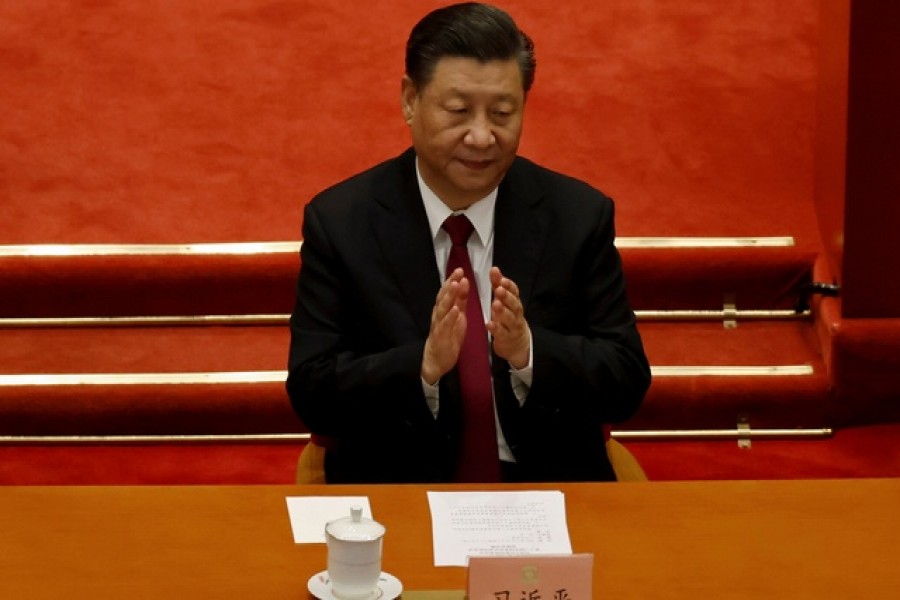Chinese President Xi Jinping on Tuesday called for a rejection of hegemonic power structures in global governance, amid growing tensions between Washington and Beijing over a widening range of issues including alleged human rights abuses.
Speaking at the annual Boao Forum for Asia, Xi criticised efforts by some countries to "build barriers" and "decouple", which he said would harm others and benefit no one.
China has long called for reforms of the global governance system to better reflect a more diverse range of perspectives and values from the international community, including its own, instead of those of a few major nations.
It has also repeatedly clashed with the biggest stakeholders in world governance, particularly the United States, over a range of issues from human rights to China's economic influence over other countries.
"The world wants justice, not hegemony," Xi said in remarks broadcast to the forum.
"A big country should look like a big country by showing that it is shouldering more responsibility," he said.
While Xi did not identify any country in his remarks, Chinese officials have in recent times referred to US "hegemony" in public criticisms of Washington's global projection of power in trade and geopolitics.
On Friday, US President Joe Biden held his first face-to-face White House summit since taking office, in a meeting with Japanese Prime Minister Yoshihide Suga in which China topped the agenda.
Both leaders said they "share serious concerns" about the human rights situation in Hong Kong and China's Xinjiang region, where Washington has said Beijing is perpetrating a genocide against Muslim Uighurs. China has denied abuses.
In a display of economic cooperation to the exclusion of China, Biden said Japan and the United States would jointly invest in areas such as 5G technology, artificial intelligence, quantum computing, genomics and semiconductor supply chains.
As the Biden administration rallies other democratic allies to harden their stance on China, Beijing is seeking to strengthen ties with its autocratic partners and economically dependent neighbours in Southeast Asia.
Chinese speakers at the Boao forum, Asia's answer to Davos, also affirmed Beijing's commitment to global free trade.
China's trade practices were a focus of an intense tariff war between Beijing and Washington under the Trump administration, with the United States accusing Beijing of unfair subsidiaries that give Chinese companies unfair advantage abroad and forced transfers of technology and intellectual property.
"The biggest experience that China's accession to the World Trade Organisation 20 years ago is that we Chinese are not afraid of competition," Long Yongtu,China's former chief negotiator for the China's WTO entry in 2001, told the forum on Monday.
SHARED INTERESTS
However, despite the persistent confrontation between the US administration and China, both sides have rediscovered a common interest in battling climate change, after bilateral talks on fighting greenhouse emissions fizzled out during the Trump era.
Last week, US climate envoy John Kerry flew to Shanghai to meet with his Chinese counterpart in the first high-level visit to China by a Biden administration official.
Both agreed on concrete actions "in the 2020s" to reduce emissions.


